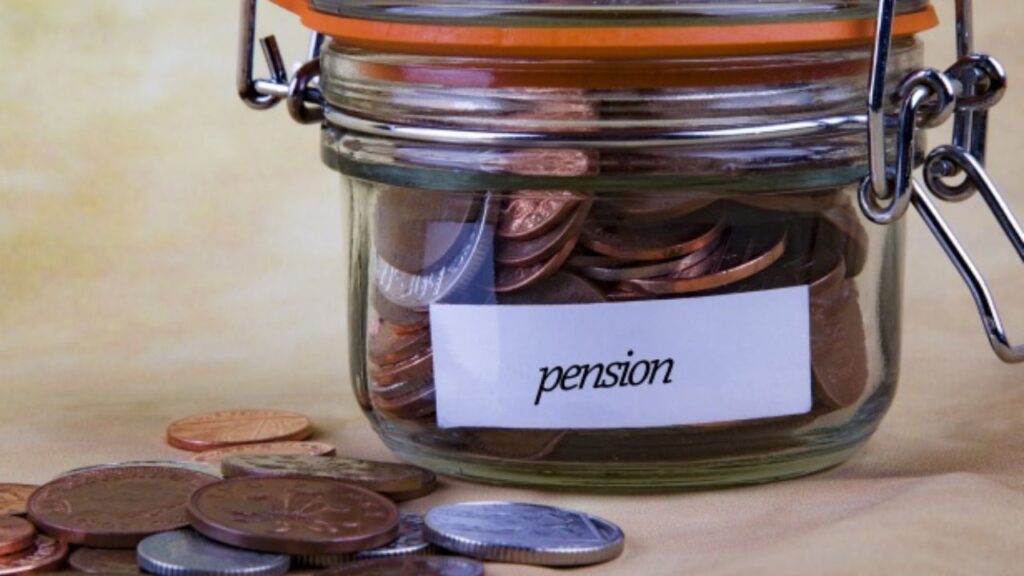Can A Pension Be Garnished For Credit Card Debt? Generally, pensions cannot be garnished for credit card debt, as they are protected under federal law.
Managing credit card debt can be tricky when you’re having financial difficulties. You may be familiar with wage garnishments, debt collection agencies, and even the prospect of losing your possessions or house.
What about your pension, though? The last thing you want is your retirement to be garnished to cover credit card debt if you depend on it for retirement security.
Can credit card debt be used to garnish a pension? The short answer is no because federal law typically protects pensions from being garnished for credit card debt.
However, some intricacies and exceptions are necessary to comprehend, just like with many aspects of the law. Everything you need to know about credit card debt and pension garnishment will be covered in this tutorial.
By the conclusion, you’ll know precisely how pension protection operates, when it can be in jeopardy, and how to safeguard yourself.
Contents
- 1 Describe garnishment
- 2 How Do Pensions Get Safeguarded?
- 3 When Is It Possible to Garnish a Pension?
- 4 What Takes Place When Credit Card Debt Is Not Paid?
- 5 How to Prevent Garnishment of Your Pension
- 6 FAQs Regarding Credit Card Debt Garnishment from Pensions
- 7 In conclusion: Can A Pension Be Garnished For Credit Card Debt?
Describe garnishment
Let’s take a moment to define garnishment before getting into the finer points of pension preservation. A court may order withholding a portion of your earnings or other income to satisfy a debt.
This practice is known as garnishment. This often covers wages, but bank accounts, tax returns, and other assets may also be included.
The creditor may file a lawsuit to get the money back if you don’t repay a loan, such as a credit card bill. The creditor may want your wages garnished to collect the debt if they prevail in a lawsuit against you.
However, other forms of income, such as pensions or Social Security, are frequently shielded from this kind of action.
How Do Pensions Get Safeguarded?
Both federal and state regulations generally safeguard pensions from creditors, particularly those that are part of government or union schemes.
Pensions and retirement plans are protected from creditor garnishment by the Employee Retirement Income Security Act (ERISA).
Most employer-sponsored retirement plans, such as pensions and 401(k)s, are protected by ERISA. [Can A Pension Be Garnished For Credit Card Debt?]
Your pension is often shielded against garnishment if it is a component of a government program, such as Social Security or a military pension.
Under federal law, Social Security benefits usually are not subject to garnishment unless specific circumstances include unpaid alimony or child support.
However, the protection may vary depending on the sort of pension you have and your debt type. [Can A Pension Be Garnished For Credit Card Debt?]
When Is It Possible to Garnish a Pension?
While pensions are generally protected from creditors, garnishment may happen in some circumstances. In the following situations, your retirement may be in jeopardy:
For Alimony or Child Support: A pension may be garnished if a judge mandates alimony or child support. Whether or not these debts result from a divorce or a child support order, family courts can garnish pensions for them since they are family support obligations.
Federal Student Loan Debt: In certain situations, the government may take money out of your pension to pay back federal student loans that have fallen behind. Even though it’s uncommon, you should be mindful of this risk if you have a significant student loan debt load.
IRS Tax Debt: The IRS can seize your bank accounts, paychecks, and pensions to collect unpaid taxes. Even though Social Security benefits are generally exempt from garnishment, the IRS may seize some of your pension income if you owe taxes.
Court-Ordered Judgments: The court may permit creditors to seize pensions if you have lost a lawsuit (for instance, if you were sued in a personal injury case). However, only the amount of your pension income that surpasses a legally mandated threshold may be garnished by creditors.
What Takes Place When Credit Card Debt Is Not Paid?
The credit card company may eventually file a lawsuit against you if you fail to pay on time. Wage garnishment may result from the court’s judgment against you if it favours the creditor.
The creditor might be unable to collect the obligation, though, if most of your income comes from a protected pension. [Can A Pension Be Garnished For Credit Card Debt?]
However, even if your pension is protected from garnishment, unpaid credit card debt may still have significant repercussions.
For instance, credit card firms could use various tactics, such as threatening legal action or lowering your credit score, to recover the amount.
Additionally, they could try to collect the debt by seizing any non-exempt assets you own, such as personal belongings or bank accounts.
How to Prevent Garnishment of Your Pension
Even though pensions are often secured, you can still take the following actions to safeguard your assets better:
Know What’s Exempt: Knowing which exemptions apply to you can be important. Retirement funds such as 401(k)s and individual retirement accounts (IRAs) are often shielded against garnishment; however, annuities may not be as secured.
Maintain a Separate Account for Your Pension: If your pension is placed in a standard checking or savings account, creditors may be able to access the money if they demonstrate that you have mixed funds. To avoid this, keep your pension income in a different account that only gets pension funds.
Seek Legal Advice: Speaking with a lawyer who focuses on debt collection or bankruptcy can be beneficial if you are now being garnished or are worried about being garnished in the future. They can help you learn how to safeguard your pension and even represent you in negotiations with creditors.
Examine Bankruptcy: In complex situations where your debts are out of control and your pension is in jeopardy, declaring bankruptcy may be a viable way to prevent garnishment and pay off your bills. However, since bankruptcy has long-term effects, it should only be used as a last choice and with great consideration.
Make Arrangements with Creditors: If you’re having trouble paying off your credit card debt, contact creditors to work out a payment plan or settlement. Instead of going through the drawn-out process of garnishment, which can cost them money and time, creditors frequently choose to settle.
See Also: Is Debt Consolidation The Same As Bankruptcy?
FAQs Regarding Credit Card Debt Garnishment from Pensions
Is it possible for a creditor to seize my pension for credit card debt?
Pensions are generally immune from credit card debt garnishment under federal law. However, garnishment may occur if your debt is associated with federal student loans, alimony, or child support.
Is it illegal to withhold Social Security benefits?
In general, Social Security benefits are shielded from credit card debt garnishment. However, the government may garnish these benefits for unpaid federal taxes, alimony, or child support.
What occurs if my credit card bill is unpaid?
The creditor may file a lawsuit if you cannot pay your credit card account, which could lead to a judgment. Creditors may attempt to seize other assets, such as your bank accounts or salary, even while your pension is protected.
Can I shield my pension from creditors?
Pensions are generally safeguarded, but you can protect them even more by storing them in a different account and getting legal advice if you’re being sued. [Can A Pension Be Garnished For Credit Card Debt?]
What should I do if there is a chance that my pension will be garnished?
Seek legal guidance from a debt counsellor or bankruptcy lawyer if your pension can be garnished. They can assist you in protecting your money and understanding your options.
In conclusion: Can A Pension Be Garnished For Credit Card Debt?
It’s crucial to realize that your pension is typically shielded from credit card debt garnishment if you depend on it for retirement.
Although there are few exceptions, including alimony or child support, the law offers pensioners much protection. [Can A Pension Be Garnished For Credit Card Debt?]
You can lessen the possibility that your pension will be garnished by taking precautions to safeguard your assets and, if necessary, consulting an expert.
To guarantee that your pension remains a reliable source of income throughout your retirement years, constantly monitor your debt commitments and practice proactive money management.

Kaiya Acosta recently finished studying finance. He has always wanted to create a blog about money. Now, he is making his dream real. Kaiya is from Texas, USA, and loves helping people learn how to manage their money better.

